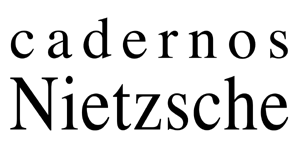Resumo em Português:
Resumo Sabe-se que o encontro com o pensamento de Nietzsche foi realmente crucial para Jung; pode-se provar pelos seminários realizados por ele entre 1934 e 1939 e dedicado à interpretação de Assim falou Zaratustra. Traços da influência deste trabalho estão presentes na estrutura, linguagem, temas e atmosferas do Livro vermelho, bem como referências explícitas ao próprio Nietzsche. Aqui eu gostaria de propor um levantamento preliminar de alguns desses vestígios. Será uma pesquisa muito limitada, a fim de possibilitar reflexões mais amplas. Os vestígios revelam uma afinidade básica entre os textos de Nietzsche e Jung, e confirma um horizonte temático e teórico comum. Acima de tudo, parece-me - e eu vou tentar provar isso - que ambas as obras compartilham uma função semelhante como dispositivos performativas de representação, mas também da produção da verdade e do confronto com ele. Na esteira dessa linha de argumento, vou me concentrar em alguns dos núcleos textuais no Livro vermelho, relacionando com a questão da verdade em Nietzsche. Nas páginas de Ecce homo que são dedicadas a Zaratustra descobrimos, de forma concentrada, questões que, como veremos, serão retomadas e desenvolvidas também no Livro vermelho: Zaratustra é definido como uma "revelação da verdade" expressa por símbolos; uma "investigação sobre a alma", uma obra em que "o que está mais próximo, o que é realmente diário, fala [...] de coisas inéditas". E a personagem Zaratustra como um homem que se "sente a mais elevada espécie de existência" justamente porque tem "acesso a todos as oposições", sem a isso sucumbir; a mais profunda e conciliadora alma, capaz de experimentar o tempo da maneira mais abissal e imanente do eterno retorno; expressão do "conceito de Dioniso", uma visão antiga, porém renovada do divino e do sagrado.
Resumo em Inglês:
Abstract It is known that the encounter with the Nietzsche thought was really crucial to Jung; it is proved, among other things, by the seminars held by him between 1934 and 1939 and dedicated to the interpretation of Thus Spoke Zarathustra. Traces of the influence of this work are present in the structure, language, themes and atmospheres of the Red book, as well as explicit references to Nietzsche himself. Here I would like to propose to you a preliminary survey of some of these traces. It will be a very limited survey in order to make possible wider reflections. The traces reveal a basic affinity between the texts of Nietzsche and Jung, and confirm a common thematic and theoretical horizon. Above all, it seems to me - and I will try to prove it - that both works share a similar function as performative devices of representation but also of production of truth and confrontation with it. In the wake of this line of argument, I will focus on some of the textual nucleus in the Red Book, with more evidence connected with Nietzsche on the question of truth. In the pages of Ecce homo which are dedicated to Zarathustra we find out, in concentrated form, issues which, as we shall see, will be resumed and developed also in the Red Book: Zarathustra is defined as a "revelation of the truth" expressed by symbols ; "research on soul", a work in which "what is nearest, what is really daily, talks [...] of unheard things". And the character Zarathustra as a man who "feels to be the highest of the existing species" just because "access all the opposites" without succumbing to this; deepest and combining soul, able to experience the time in the most abysmal and immanent way of the eternal return; expression of the "concept of Dionysos", an ancient yet renewed vision of the sacred and the divine.
